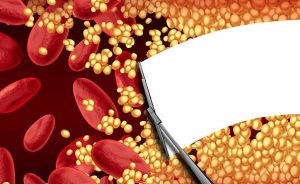Are you taking blood thinners and wondering why you feel colder than usual? If so, know that you’re not alone. Blood thinners have become a widely prescribed medication due to their ability to prevent severe health conditions such as stroke and heart attack. However, they can also have side effects that may make you feel cold or chilly. So Yes, blood thinners make you tired. In this blog post, we’ll explore the connection between blood thinners and feeling cold and what you need to know to keep yourself safe and comfortable. So grab a cozy blanket, settle in, and dive into the essential facts about blood thinners!
The Relationship Between Blood Thinners and Coldness
Contents
If you’re on a blood thinner, you may have noticed that you always feel cold. This is a common side effect of these medications, and it can be a bit of a nuisance. But why does this happen?

Blood thinners work by preventing blood clots from forming. Clots can cause severe problems like heart attacks and strokes, so taking them as prescribed is important. However, blood thinners can also make your blood less sticky, so it doesn’t clot as easily. This can lead to feelings of coldness since your body cannot retain heat either.
You can do a few things to combat the feeling of coldness if you’re on blood thinners. First, make sure you’re dressing warmly and in layers. You may also want to avoid caffeine, alcohol, and smoking, as these can contribute to feelings of coldness. If you still feel chilly, talk to your doctor about other options like wearing gloves or taking a warm bath before bedtime.
Blood thinners can be vital to managing your health, but being aware of the side effects is essential. Coldness is one of them, but you can try to minimize the discomfort with the right strategies.
Factors That Can Contribute to Feelings of Coldness
A few different factors can contribute to feelings of coldness, even when it’s not particularly cold out. Behind that one factor is low blood sugar levels, which can cause shakiness, sweating, and feelings of coldness. Another potential factor is an underactive thyroid gland, which can cause fatigue and make it difficult to warm up. Additionally, blood thinners can sometimes cause side effects like chills or coldness.
There are a variety of blood thinners on the market today, and each one comes with its own set of potential side effects. While some people may experience no problems while taking blood thinners, others may suffer from fatigue or other issues.
If you’re taking a blood thinner and feeling tired, it’s important to talk to your doctor. In some cases, fatigue may be a sign that the medication is not working as it should. In other cases, there may be another underlying condition causing the fatigue. Either way, you must talk with your doctor to resolve the issue and ensure you’re on the proper medication for your needs.
Finally, dehydration can also be a factor. This can cause shivers and make it difficult to warm up, even in mild temperatures. It’s essential to stay hydrated throughout the day and drink plenty of fluids to help prevent coldness caused by dehydration.
How Blood Thinners Can Affect the Body’s Temperature Regulation System
There are a few ways that blood thinners can affect the body’s temperature regulation system. For one, blood thinners can cause the body to lose heat more easily. This can make you feel cold even when you’re not in a relaxed environment. Additionally, blood thinners can cause your skin to become more sensitive to changes in temperature. So, if you’re exposed to cold weather, you may feel colder than someone who isn’t taking a blood thinner. Finally, blood thinners can also interfere with the body’s ability to sweat. Sweating is one of the ways our bodies regulate their temperature, which can further contribute to feeling cold.

Speaking to your doctor about any temperature changes you may be experiencing while taking blood thinners is essential. Your doctor may be able to adjust your dosage or recommend other measures to help regulate your body’s temperature.
In summary, blood thinners can affect the body’s temperature regulation system by causing the body to lose heat more easily, making your skin more sensitive to changes in temperature, and interfering with the body’s ability to sweat. It is important to speak to your doctor if you are experiencing any temperature changes while taking a blood thinner.
Blood thinners Side Effects Fatigue
Blood thinners are a common medication prescribed to individuals at risk of blood clots or stroke. While they can be life-saving, knowing their potential side effects is important. One commonly experienced side effect is fatigue, which can greatly impact daily life. In this blog post, we’ll explore why it’s crucial to understand the possible side effects of blood thinners and how you can manage fatigue while taking them. Let’s dive in!
Several potential side effects are associated with blood thinners, and fatigue is one of the most common. Blood thinners can cause your body to work harder to pump blood, leading to fatigue and tiredness. They can also cause anemia, which can further contribute to fatigue. In addition, blood thinners can interact with other medications you may be taking, which can also lead to fatigue. If you are experiencing fatigue while taking blood thinners, talk to your doctor about it.
Conclusion
Blood thinners can be essential to a person’s healthcare regimen but can also cause unpleasant side effects. It is important for people who are considering taking blood thinners to understand the potential risks and benefits associated with them. One common symptom reported by many users is feeling cold, which may be caused by the decreased viscosity of the blood. Understanding this risk beforehand will help ensure that you take proper precautions and speak with your doctor if any concerning symptoms become apparent.
